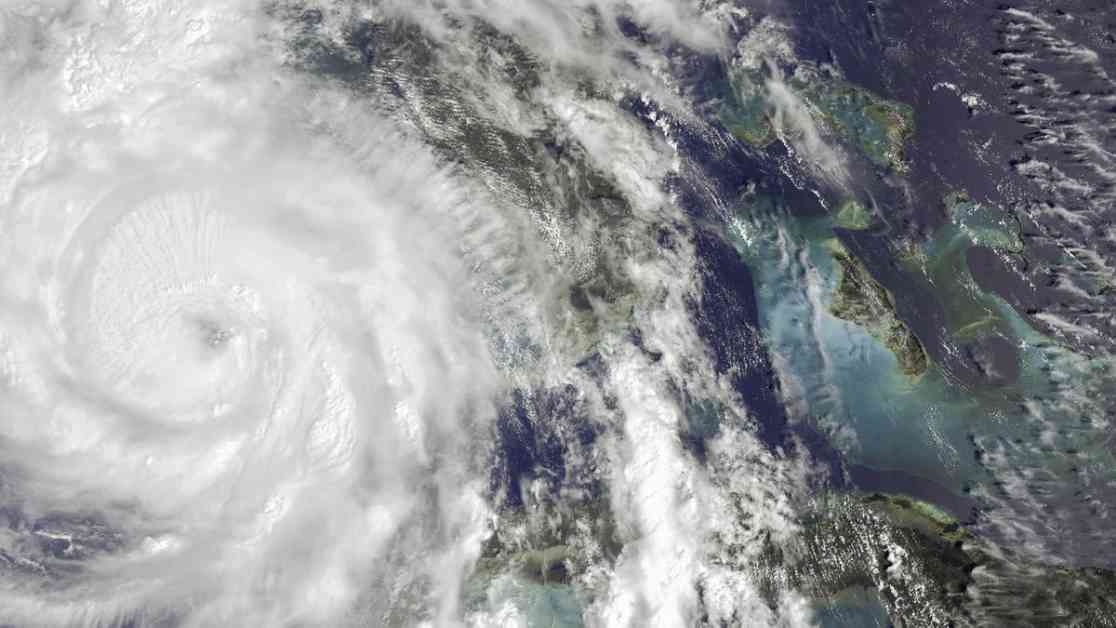Climate change has had a significant impact on the wind speeds of Atlantic hurricanes in 2024, according to a new study released by Climate Central. The study found that all 11 storms that formed this year experienced increased maximum wind speeds due to warmer-than-average ocean temperatures. This resulted in seven storms reaching a higher category than they would have without the influence of climate change, with Hurricanes Debby and Oscar potentially remaining tropical storms in a world without global warming.
Lead study author Daniel Gilford, a climate scientist with Climate Central, highlighted the connection between rising global temperatures and warmer ocean waters, particularly in the Atlantic Ocean. The study not only focused on the 2024 hurricane season but also analyzed Atlantic hurricanes over the past five years. It was discovered that elevated ocean temperatures caused five out of every six hurricanes between 2019 and 2023 to intensify by an average of 18 miles per hour, resulting in 30 hurricanes reaching a higher category due to climate change.
Furthermore, the analysis revealed that some hurricanes, including Hurricane Lee in 2019, Ian in 2022, Lorenzo in 2023, and both Milton and Beryl in 2024, reached Category 5 status solely because of the influence of climate change. In particular, Hurricane Milton saw a remarkable increase of 120 miles per hour in wind speeds in less than 36 hours after passing over waters with temperatures more than 3 degrees Fahrenheit above normal.
The study utilized attribution science to investigate the links between global warming and extreme weather events, focusing on the impact of warming ocean waters on hurricane intensification. The findings confirm that hurricanes are growing stronger as sea surface temperatures rise, leading to a higher proportion of storms reaching major hurricane status.
In addition to wind speeds, studies have shown that climate change can also intensify hurricane rainfall, leading to increased flooding and damage. While water-related impacts are significant, higher category storms with stronger wind speeds tend to be more costly and deadly overall. This underscores the importance of understanding and communicating the risks associated with intensifying hurricanes to the public.
Experts emphasize the need for effective communication strategies to raise awareness about the dangers of strengthening hurricanes and other extreme weather events. As communities face unprecedented disasters due to climate change, it is crucial to prepare and adapt to the increasing risks posed by more intense storms. By taking proactive measures and enhancing communication efforts, lives can be saved and communities can better withstand the impacts of intensifying disasters.










